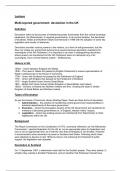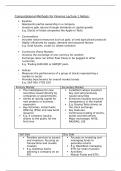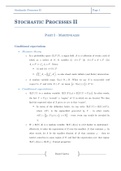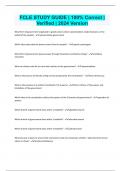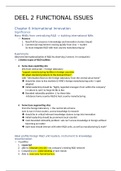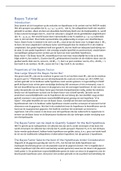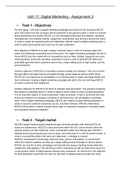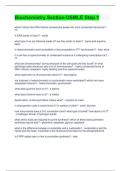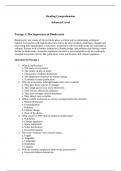Lecture 1 modeling marketing data
Working methods: lectures
In the lecture slides there will be basic codes, but make sure you read about R yourself. Goal is to give a
toolkit for the thesis. Probably we will given a dataset during the exam, show some analysis and
interpret results from various models.
Working methods: articles:
• Not directly exam material
• Reason to include article
• Some articles help understand theory/method
• Some articles use a creative (public) source of data
• Some articles use methods we cover
o On exam I ask to interpret results of these or similar articles
o You do not need to know every detail of the article, but get the general understanding
of the article
o outputs, also here only relevant parts
o If you use R add notebook file
Goal of this course:
▪ Preparation for a thesis with secondary data
• Where to find (public) secondary data
• How to clean/manage secondary data
• How to describe secondary data
• How to analyze secondary data
• How to interpret results based on secondary data
• In broader sense this will prepare you to use models to support marketing decisions,
and provide answers to both managerial relevant and scientific research questions
Introduction to the course:
Why modeling marketing data?
Some history by Wedel & Kannam (2016). Give an overview of why big data is important and give an
overview of what it has meant for practice and academia. Also includes the type of data that was
available throughout the years. The latest developments were social and location based data.
, Marketing from art to science
▪ “Marketing should be less about art, and more about science” (Quote from Wall Street Journal
2009)
▪ Moving from opinion-based decision making (conceptual marketing) to data-based decision
making (with an experience component)
▪ Should not be based on gut feeling, but should be backed up with models and insights based on
data
What is data-based decision-making and why it is relevant?
▪ The usual approach: seat-of-the-pants
▪ = deciding by using your own judgement and feelings without planning, preparation or
help from others (“I think this would work”)
- The data mining approach: there is now so much data available so that you can be led by the
data
What is data-based decision-making and why is it relevant?
- To make good decisions, you need to have the right balance: use the data to get an idea, but
also use your own intuition
What is data-based decision-making and why is it relevant?
In the end you have to test a conceptual framework. If you read the top marketing journals that are
based on empirical/data models, you see papers that they sometimes more use propositions instead of
hypotheses. But in your thesis: try to still have theoretical story. You should have both theory and data
to make impactful decisions in business and to test conceptual frameworks for academic purposes.
Working methods: lectures
In the lecture slides there will be basic codes, but make sure you read about R yourself. Goal is to give a
toolkit for the thesis. Probably we will given a dataset during the exam, show some analysis and
interpret results from various models.
Working methods: articles:
• Not directly exam material
• Reason to include article
• Some articles help understand theory/method
• Some articles use a creative (public) source of data
• Some articles use methods we cover
o On exam I ask to interpret results of these or similar articles
o You do not need to know every detail of the article, but get the general understanding
of the article
o outputs, also here only relevant parts
o If you use R add notebook file
Goal of this course:
▪ Preparation for a thesis with secondary data
• Where to find (public) secondary data
• How to clean/manage secondary data
• How to describe secondary data
• How to analyze secondary data
• How to interpret results based on secondary data
• In broader sense this will prepare you to use models to support marketing decisions,
and provide answers to both managerial relevant and scientific research questions
Introduction to the course:
Why modeling marketing data?
Some history by Wedel & Kannam (2016). Give an overview of why big data is important and give an
overview of what it has meant for practice and academia. Also includes the type of data that was
available throughout the years. The latest developments were social and location based data.
, Marketing from art to science
▪ “Marketing should be less about art, and more about science” (Quote from Wall Street Journal
2009)
▪ Moving from opinion-based decision making (conceptual marketing) to data-based decision
making (with an experience component)
▪ Should not be based on gut feeling, but should be backed up with models and insights based on
data
What is data-based decision-making and why it is relevant?
▪ The usual approach: seat-of-the-pants
▪ = deciding by using your own judgement and feelings without planning, preparation or
help from others (“I think this would work”)
- The data mining approach: there is now so much data available so that you can be led by the
data
What is data-based decision-making and why is it relevant?
- To make good decisions, you need to have the right balance: use the data to get an idea, but
also use your own intuition
What is data-based decision-making and why is it relevant?
In the end you have to test a conceptual framework. If you read the top marketing journals that are
based on empirical/data models, you see papers that they sometimes more use propositions instead of
hypotheses. But in your thesis: try to still have theoretical story. You should have both theory and data
to make impactful decisions in business and to test conceptual frameworks for academic purposes.

